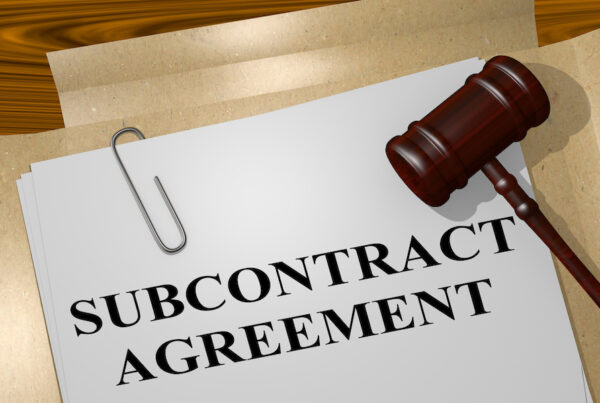“It was 9 am on a Tuesday morning and the day has begun with a concerning phone call regarding a recently finished job. The plumbing that we installed sprung a leak and resulting water damage was severe. Not only will we need to fix the plumbing, meaning time taken away from other paid projects, but worse – we are now open to a potential lawsuit. And while this is the cost of doing business, we made one fatal mistake – in the mad rush of the busy season, we let our General Liability policy lapse, and now this potential lawsuit could destroy everything we worked so hard for”
Unfortunately, we hear stories like that from our customers all the time. Purchasing a General Liability insurance is arguably one of the most important business decisions that you can make to protect your business. Even though most states do not mandate a GL (general liability) coverage for small businesses – go without one and you can find yourself in a middle of a costly legal battle with no backup plan.
Look, things happen. Accidents and even faulty work are a part of this business. But purchasing (and maintaining) your General Liability policy can be the difference between the ability to dodge these bullets and going down, taking your business with you.
So what are the main coverages that comprise your GL policy? Let’s take a look.
General Liability policy main coverages:
All General Liability policies, typically provide these main coverages:
• Bodily Injury & Property Damage – provides coverage if you (or your employee) cause injury or death of a third party or damage third party’s physical property during the course of your work. For example, your employee dropping a hammer while high up on a ladder and hitting a passerby (bodily injury). Or that same hammer falling on a parked car (property damage). The injured passerby is extremely likely to file a claim against you for the injury and damages sustained.
• Products and Completed Operations – the most important coverage for a contractor. Provides coverage for damage caused as a result of your finished work, after you’ve packed up your equipment and moved on to another job. The example claim at the beginning of this article, could have been covered under this section of the policy.
• Personal and Advertising Injury – provides coverage for lawsuits against you alleging libel and slander.
But just purchasing the policy is not enough.
There are few key components that need to be carefully considered to make sure your business is adequately protected.
Claims Made vs. Occurrence Policy
The main difference between these two policies is at what point the coverage is triggered. In an occurrence policy, the trigger is the time the loss occurred at. As long as the loss occurred during the policy period the occurrence based policy will respond. In a claims made policy, the trigger is when the claim is brought in. The claim needs to be brought in while the policy is in force – only then the policy will respond. For example, if you have been insured on a claims-made policy for the last 10 years, and this year your insurance lapses – if a claim is brought in after the policy has been canceled, even if the loss occurred during the policy period, the policy would not cover you.
What does it mean for you?
Let’s imagine you have been insured for 10 years on a claims made policy and at the end of the 10th year, you retire. One year later a homeowner brings in a lawsuit, for an allegedly faulty foundation in a home you built during the policy period. If you did not purchase a special extension coverage, the claims made policy will not cover you since there is no policy in effect anymore. The fees, the legal defense, and the settlement will come from your retirement.
The extension coverage, we mentioned, is a way to ensure coverage even after the policy is canceled but then you are stuck paying for this coverage for up to 10 years. Yes, 10 years – since that’s how long the consumer has by law to bring up construction problems.
Even though claims-made policy is usually substantially cheaper, it carries a potentially huge hidden cost in the form of the extension coverage.
We recommend an occurrence based policy to our clients if at all possible.
Exclusions –
It’s also very important to pay attention to different exclusions that your policy has. There is no such thing, as a policy that covers absolutely everything. Every policy has standard exclusions (such as war, nuclear, etc.) as well as exclusions by endorsement that are specific to the policy you (or your agent) has negotiated with the insurance company.
For example, if you are a landscape contractor and you see a “pesticide, herbicide and fungicide” exclusion you’ve got a problem. It is likely that the underwriter that did your quote made a mistake, but if you accept the contract as is – you are liable for what you accepted. Unfortunately, these mistakes usually come to light when there is a claim which is denied based on the exclusion, but then it’s too late.
It is very important to take a look at the exclusions and understand how they affect your operations or even possible future operations. For example, you are currently only building new single family residences. But there is a chance you might be building condos if the right opportunity comes along. In this case, you want to make sure you do not have the condos exclusion on the policy. Or at the very least, be aware of it and negotiate exclusion removal before engaging in that type of work.
Subcontractors
Another important point to touch on is the matter of subcontractors. You always have to make sure that any subcontractor you hire has General Liability policy of their own and can provide you a certificate of insurance naming you as an additional insured on their policy.
If this is not done, and a claim is brought the claim will either go against your insurance policy or if your insurance policy does not cover this type of claim, then against your pocket.
Additional Insured endorsement gives you access to your sub’s policy in case you are named as a defendant in a claim that they are liable for.
As you can see not having a General Liability policy can put a significant strain on your business’s finances in the event of a claim or even bring it down altogether.
We know that insurance is one of the necessary evils everybody hated paying the monthly premium for, yet is very happy once they are successfully defended against a lawsuit. It is important to not only have the coverage but also have a right coverage.
An experience insurance broker will help you navigate all the details of claims made vs. occurrence policies, the additional insured endorsements, will ensure there are no exclusions that will negatively impact your existing and/or future operations.
GRBM Insurance Services has been serving our community for over 25 years, helping contractors navigate the insurance and all its intricacies. Do you want to make sure that your policy covers your business correctly? That you are not opening yourself up for a potentially costly lawsuit with gaps in coverage? We’ll be happy to answer any questions.



